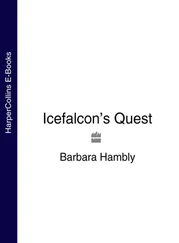And unlike the vampire, he had not chosen to make this change.
Contamination of blood , Ysidro had said. They do not seem to retain that individuality which makes me Simon and you James . . .
‘Ho brought the creature back to me at once.’ With the point of the tongs, Dr Bauer gently touched one monstrous fang. ‘Ho has never believed in demons. He insisted that the things people said they saw in the twilight had some kind of natural explanation. He also insists that the stories that these yao-kuei can summon and dismiss hordes of rats from the mines are superstition—’
‘Rats?’ Karlebach looked up sharply.
‘So the story goes. Such vermin are abundant both in the mines and in the marsh below the main entrance.’
‘And how long,’ inquired Asher, ‘has the story “gone” like this, Frau Doktor? I’ve studied the folklore of Hebei Province, and nothing I’ve heard of has ever sounded like this.’
‘No, this is very recent. The villagers call them yao-kuei , but most attribute their appearance to the misdeeds of the Emperor and the loss of Heaven’s Mandate for his rule. I first heard stories of yao-kuei being seen not long before Christmas, so it has been almost a year.’
She replaced the bone fragments in their box and locked it up again. ‘You understand, my people here go out very little once the sun is down. Aside from concern about ghosts in the darkness, for years now there have been brigands in these hills. Now that Kuo Min-tang militia are forming, it isn’t unheard of for men to be kidnapped into their bands. Poor Mrs Wei swears that the yao-kuei took her husband, who was lame and of no use to either the bandits or the Kuo Min-tang.’ She shook her head. ‘One cannot understand people like that.’
Karlebach whispered, ‘A year . . .’
‘It is conceivable, is it not –’ Dr Bauer carefully locked the box back into its cupboard – ‘that a group of these creatures – a little tribe – has been concealed in the caves in these hills, all these centuries? The caves near Nan Che-Ying Village have never been completely explored, and the river that runs through the Kong-Shui caves goes for miles beneath the earth. Such creatures might well scavenge food from the mine workings and from the garbage heaps of the temples.’
‘But in that case,’ said Asher, ‘wouldn’t there be stories earlier than last year?’
‘Let me see its clothing.’ Karlebach’s voice was hoarse.
Dr Bauer pulled back the window curtains, opened the shutters, and fetched another box. Good-humoredly, she said, ‘I have to warn you about these.’
Asher flinched from the smell as she brought out the rags: the remains of a short ch’i-p’ao – the straight, baggy, coat-like tunic that for two hundred and fifty years had been standard dress for all Chinese, male and female – and the remains of a man’s ku trousers. Both had been torn to ribbons by the dogs and were unspeakably soiled.
‘You read my description of the thing,’ said Bauer quietly. ‘I wish you could have seen it. It must have observed how men wear clothing and put these on in imitation of what it had seen. You saw the skull. The face wasn’t remotely human. It was almost hairless, its spine bent forward, and the hands bore claws rather than human nails. For twenty-five years I have worked here in Mingliang, calling these beautiful souls here to Christ, and never have I heard of anything like these: not in fairy tales, not in legends, not in the stories that grandfathers told the little ones to scare them from going into the old mines. I’ve heard a thousand fireside legends, Herr Professor, and I’ve talked to hunters who’ve been all over these hills . . .’ She shook her head, her eyes filled with anger and fear.
‘Now anthropologists from Berlin call me a faker, and my own bishop has accused me of trying to garner contributions to my mission by coming up with a “scientific discovery”. And all the while my people here tell me they have seen more and more of these things. The village policeman saw what he thought was two of them together, only five days ago – and now I see by your faces that you are not shocked, not even very surprised. Where, and when, have you seen these things before? What can you tell me of them?’
‘We can tell you nothing, gnädige Frau,’ said Asher, before Karlebach could speak. ‘Because we know nothing. But it would help us learn if you could have someone take us to the place where your policeman saw these things, and also to the marsh below the coal mine, where Liao Ho’s dogs killed our friend there in the box.’
‘It is them.’
Dr Bauer – pacing sturdily ahead of them along the steep, brush-grown trackway up the gorge – glanced back at the sound of their voices, but Karlebach breathed the words in the Czech which had been his childhood tongue, and which Asher had spoken on his wanderings through Central Europe twenty years before. The missionary had greeted Sergeant Willard and trooper Gibbs in halting English, and in that language had thanked them for accompanying the exploring party. And while Asher knew that thousands of Germans – possibly tens of thousands – considered the Kaiser’s warlike aspirations as irresponsibly appalling as the English did, there was no guarantee that Christina Bauer was one of them.
And even if she did, Asher knew that in every foreign ministry in every country on the globe there was one clerk or secretary or minister-without-portfolio whose sole business it was to pick up shreds of information – from shopkeepers, from missionaries, from other peoples’ servants – and sort through those shreds for something which could be used by the Home Country. He’d done it himself. He didn’t know what use the German General Staff would think up for things that were deathless, predatory, and might or might not share the mental powers of illusion and deception that seemed to come with the vampire state. But with a colony of them as close to Berlin as Prague, he wasn’t about to take chances.
‘What are they doing here?’ he asked softly in the same tongue. ‘I asked vampires I met in Central Europe whether this . . . this mutation , this altered form, had ever been known to spontaneously appear . . .’
‘And you believe what they told you?’ His shotgun slung over one powerful shoulder, Karlebach leaned on a stick as he walked, but though the trackway was steep, his breath seemed as strong as that of the two soldiers who brought up the rear of the party.
‘They had no reason to lie.’
‘It is the nature of the vampire to lie, Jamie,’ retorted the old man. ‘Until you believe that, you will not know them.’
The gorge of the Mingliang stream had been severely deforested over the centuries. Here and there thin stands of pine trees remained, but mostly there was only brush along the water, and thin yellowed grass flittering in the icy wind. Chan – Liao Ho’s remaining dog – stopped on the trail, a growl rumbling in his throat. ‘What you see back there, eh?’ demanded the little farmer, and he gently shook a handful of his pet’s thick ruff. ‘Somebody follow, not follow?’
Asher, too, scanned the bleak hill-slopes. All his instincts from seventeen years in the field prickled under his skin. Not the yao-kuei , anyway . . . It was mid-afternoon, the sun slipping from zenith to the western ridges.
But someone. On the hard dust of the trail he’d seen recent boot prints, enough to know that either bandits – endemic in China during periods of unrest – or Kuo Min-tang ‘militia’ had been in the area within the past few days. Bandits might not feel up to taking on two British soldiers with Enfields – young Trooper Barclay had remained behind in the village with the horses – but those Enfields would appeal strongly to a larger band.
Читать дальше






